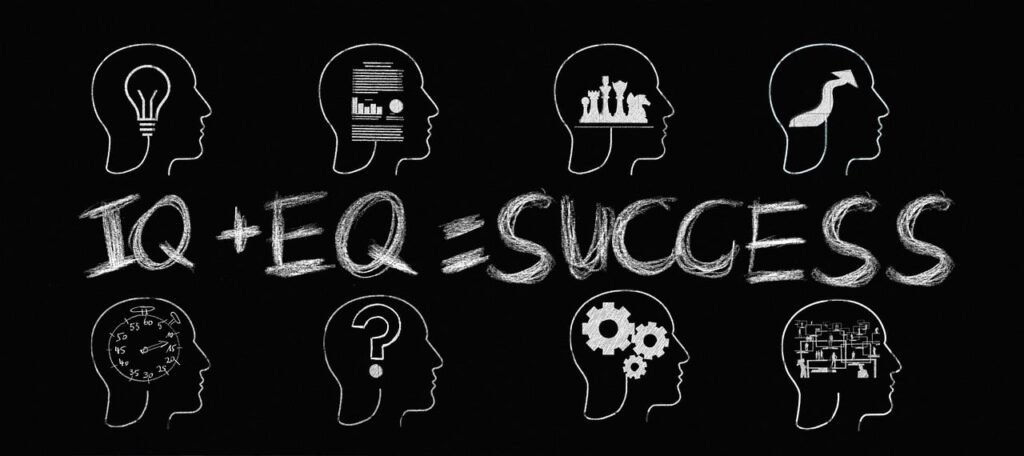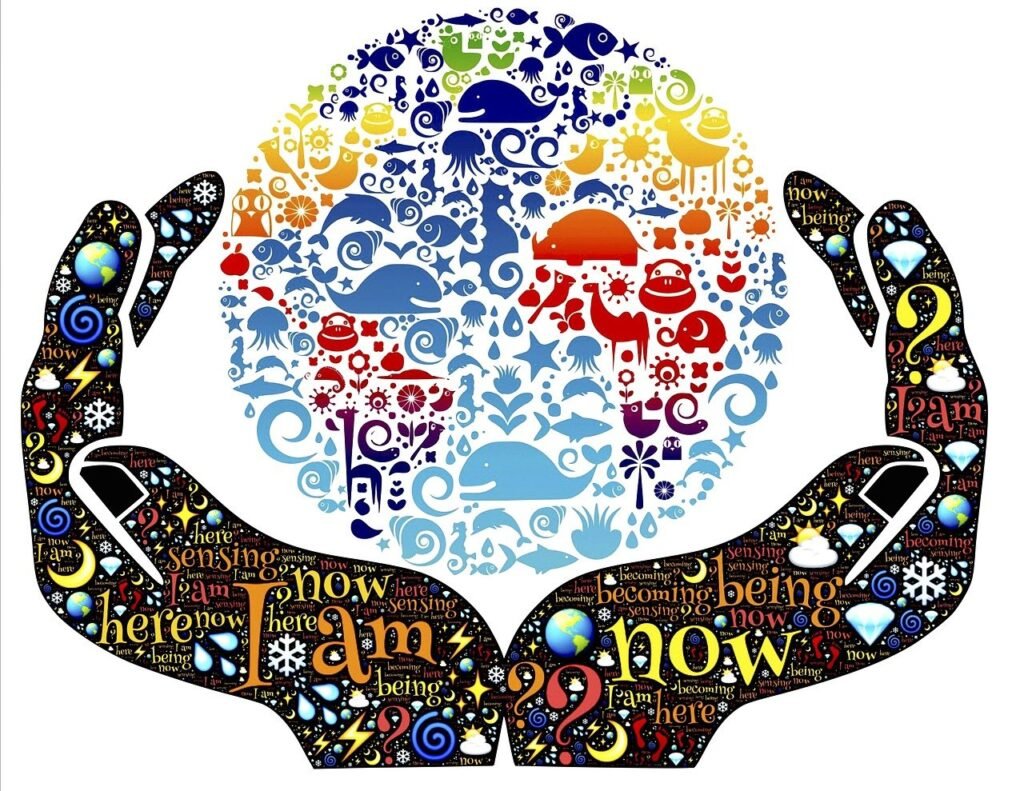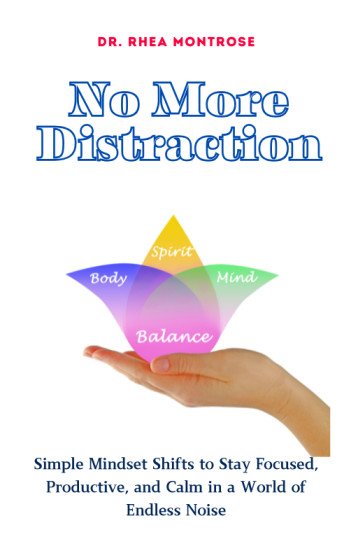
In today’s interconnected world, to develop emotional intelligence (EI) has become an indispensable skill for success. Defined as the ability to recognize, understand, and regulate emotions in oneself and others, EI goes beyond IQ as a predictor of professional achievement, effective leadership, and personal fulfillment. This article explores the seven fundamental steps to developing emotional intelligence, providing actionable insights and strategies to help you excel in both personal and professional realms.
Step 1: Cultivate Self-Awareness
Self-awareness is the foundation of emotional intelligence. It involves understanding your emotions, triggers, and behavioral patterns, as well as recognizing their impact on others. Without self-awareness, it’s impossible to manage emotions effectively or build meaningful relationships.

Why Self-Awareness Matters:
- It helps you identify emotional patterns that may hinder your growth.
- It allows you to make more informed decisions by understanding how emotions influence your judgment.
- It fosters authenticity, a key trait for building trust with others.
How to Develop Self-Awareness:
- Keep an Emotional Journal: Regularly record your thoughts, feelings, and reactions to different situations. Over time, this will help you identify recurring emotional triggers.
- Reflect on Feedback: Seek constructive feedback from colleagues, friends, or family about how you handle emotions and interactions.
- Practice Mindfulness: Engage in mindfulness exercises like meditation or body scanning. These practices heighten your awareness of the present moment and improve emotional clarity.
- Assess Your Emotional Vocabulary: Expand your ability to articulate emotions beyond “happy,” “sad,” or “angry.” A nuanced understanding of feelings deepens self-awareness.
For example, instead of simply labeling an emotion as “anger,” you might recognize it as “frustration due to unmet expectations,” which gives you a clearer understanding of its cause.
Step 2: Master Self-Regulation
Self-regulation is the ability to manage your emotional responses constructively, ensuring they align with your goals and values. It requires controlling impulsive reactions, adapting to change, and staying composed under pressure.

Importance of Self-Regulation:
- It helps prevent hasty decisions driven by temporary emotions.
- It enables you to maintain professionalism and credibility in challenging situations.
- It enhances your ability to handle stress effectively.
Strategies for Self-Regulation:
- Pause Before Reacting: When faced with an emotionally charged situation, take a moment to breathe and collect your thoughts. This prevents rash actions.
- Develop Emotional Anchors: Use positive affirmations or visualizations to ground yourself when emotions threaten to overwhelm.
- Cultivate a Growth Mindset: View setbacks as opportunities for learning and growth rather than failures.
- Practice Relaxation Techniques: Techniques like deep breathing, yoga, or progressive muscle relaxation can help you calm your mind during stressful moments.
For instance, if a colleague’s criticism angers you, instead of reacting defensively, pause to reflect. Consider whether the feedback is constructive and how you can use it to improve.
Master Self Regulation with Best Selling E-Book

“No More Distraction: Simple Mindset Shifts to Stay Focused, Productive, and Calm in a World of Endless Noise” is a practical guide to mastering focus in a technology-driven world full of distractions. With actionable insights and mindset shifts, this book empowers readers to reclaim their attention, boost productivity, and find inner calm amidst constant digital noise. Designed for those looking to navigate the challenges of social media and information overload, this book is essential for anyone seeking to enhance their focus and resilience in the modern age.
Step 3: Ignite Intrinsic Motivation
Motivation is a driving force behind emotional intelligence. It involves setting meaningful goals and maintaining a positive attitude toward achieving them. While external rewards can provide short-term satisfaction, intrinsic motivation leads to sustained effort and resilience.

Why Motivation is Essential:
- It fuels perseverance during tough times.
- It aligns your efforts with long-term aspirations rather than fleeting desires.
- It fosters enthusiasm and optimism, traits that inspire others.
Steps to Build Intrinsic Motivation:
- Clarify Your Purpose: Reflect on your values and passions. Align your goals with these to create a sense of meaning and fulfillment.
- Set SMART Goals: Develop Specific, Measurable, Achievable, Relevant, and Time-bound objectives. These goals provide clarity and direction.
- Celebrate Small Wins: Acknowledge and reward incremental progress. This reinforces positive behaviors and keeps you energized.
- Visualize Success: Regularly imagine yourself achieving your goals. Visualization strengthens your commitment and builds confidence.
For example, a professional striving for a promotion might focus on mastering new skills, building stronger relationships, and consistently delivering excellent results.
Step 4: Develop Empathy
Empathy is the ability to understand and share the feelings of others. It’s a cornerstone of emotional intelligence, enabling you to connect with people on a deeper level and foster collaborative relationships.
Benefits of Empathy:
- It enhances communication and reduces misunderstandings.
- It builds trust and strengthens interpersonal bonds.
- It helps leaders inspire and motivate their teams.
How to Practice Empathy:
- Active Listening: Focus fully on the speaker without interrupting. Paraphrase their words to show understanding and ask clarifying questions.
- Observe Nonverbal Cues: Pay attention to body language, tone of voice, and facial expressions to gain insights into others’ emotions.
- Walk in Others’ Shoes: Try to see situations from another person’s perspective, even if you disagree with their views.
- Practice Kindness: Small acts of kindness, like offering support or encouragement, demonstrate empathy and strengthen relationships.
For instance, a manager who notices an employee’s drop in performance might engage in a private conversation to understand any personal struggles rather than jumping to conclusions.
Step 5: Hone Social Skills
Social skills are the tools that enable you to build relationships, navigate conflicts, and influence others positively. They encompass effective communication, collaboration, and leadership.
Why Social Skills Matter:
- They help you build rapport and connect with people from diverse backgrounds.
- They enable you to resolve conflicts diplomatically.
- They are crucial for teamwork and leadership.
Strategies to Improve Social Skills:
- Enhance Communication: Practice clear and concise communication. Adapt your tone and message to suit your audience.
- Learn Conflict Resolution: Approach conflicts with a problem-solving mindset. Focus on finding win-win solutions rather than assigning blame.
- Cultivate Networking Skills: Build and maintain professional relationships by attending events, offering help, and staying in touch.
- Show Appreciation: Acknowledge and celebrate others’ contributions. This fosters goodwill and strengthens relationships.
For example, a team leader can foster collaboration by actively involving all members in decision-making processes and valuing their input.
Step 6: Build Resilience
Resilience is the ability to bounce back from adversity. It’s a critical component of emotional intelligence, helping you maintain emotional balance and stay focused on your goals despite challenges.
Why Resilience is Key:
- It helps you adapt to change and uncertainty.
- It prevents burnout by promoting emotional stability.
- It fosters a proactive approach to problem-solving.
How to Build Resilience:
- Embrace Change: View change as an opportunity for growth rather than a threat. Focus on aspects you can control.
- Develop Coping Strategies: Create a toolkit of healthy coping mechanisms, such as exercising, journaling, or seeking support from friends.
- Focus on Solutions: Instead of dwelling on problems, channel your energy into finding actionable solutions.
- Cultivate Optimism: Practice gratitude and affirm positive outcomes, even in difficult situations.
For instance, during a company restructuring, a resilient employee might focus on upskilling and exploring new opportunities within the organization.
Step 7: Enhance Relationship Management

Effective relationship management involves building and maintaining healthy interactions with others. It’s the culmination of all the previous steps, allowing you to influence, inspire, and collaborate effectively.
Importance of Relationship Management:
- It strengthens your professional network and opens doors to new opportunities.
- It enables you to lead and inspire teams toward shared goals.
- It helps you navigate complex social dynamics with ease.
Tips for Relationship Management:
- Practice Emotional Agility: Adapt your approach to suit different personalities and situations.
- Foster Collaboration: Encourage teamwork by creating an inclusive and supportive environment.
- Provide Constructive Feedback: Offer feedback that is specific, actionable, and focused on growth rather than criticism.
- Be Authentic: Build trust by being genuine and transparent in your interactions.
For example, a leader with strong relationship management skills can inspire loyalty and commitment among team members by recognizing their efforts and addressing concerns proactively.
Conclusion
Developing emotional intelligence is a journey that requires self-awareness, self-regulation, motivation, empathy, social skills, resilience, and relationship management. These seven steps provide a roadmap to mastering EI and unlocking your potential for success in all areas of life. By committing to this process, you’ll not only achieve personal growth but also inspire and uplift those around you.
Emotional intelligence is not a fixed trait but a skill that can be cultivated through consistent practice and reflection. Start today, and watch how these steps transform your life and career.

